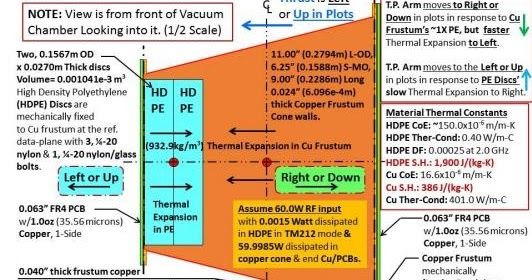Page 10907
Sep 23, 2016
RFID in China 2015–2025: Forecasts, Players, Opportunities : Data and analysis of the technologies, markets and value chain
Posted by Karen Hurst in categories: government, transportation
LONDON, Sept. 22, 2016 /PRNewswire/ — This report provides quantitative analysis and unprecedented level of insight into China’s RFID industry, analyzing the market by application, region, frequency band and value chain. The report develops a ten-year segmented market forecast. It also provides detailed profiles of 28 listed companies in addition to a further summary of 110 other Chinese RFID players. By 2025 the total RFID market in China will reach US$4.3 billion. This report provides a complete view of the RFID suppliers, value chain, applications and trends in China. It looks not only at the RFID manufacturing base in China, but also the applications of RFID in China, providing ten year forecasts by 13 application categories. IDTechEx has studied the RFID market globally for 15 years and this research builds on that knowledge in addition to new research carried out in Chain by IDTechEx analyst Dr Xiaoxi He. Over 150 RFID companies have been identified.
China already has 85% of the world’s RFID manufacturing capacity, being a major exporter of tags. In addition, the second generation National Identification Card project in China is the largest RFID order by value and China is delivering it by using Chinese-only resources almost exclusively. Thanks to strong support by the government, China has used RFID widely on applications ranging from library assets to train tickets, and as China becomes a leader in manufacturing in most segments — from cars to planes — it will fuel increasing demand for RFID in manufacturing and many other industries.
As RFID is increasingly being deployed around the world (IDTechEx expect that over 8.5 billion tags will be sold globally in 2015 versus 7 billion in 2014), suppliers are in the process of shaving off fractions of a cent from each inlay, particularly for passive UHF. That means picking up and moving manufacturing base to China in some cases. There have also been other, relatively new entrants that by strong investment (including acquisition) have gained a relatively high market share from nothing in a few years, examples being Arizon RFID and Shangyang, to name a few.
Sep 23, 2016
Quantum computers will cripple encryption methods within decade, CSE head warns
Posted by Karen Hurst in categories: computing, encryption, internet, quantum physics, security
Definitely less than a decade and even less than 7 especially with China Quantum Satellite, Google’s plan release next year of a Quantum device, etc. I hope folks don’t still believe that we’re immune from a QC attack after 2025.
In a rare public speech, Greta Bossenmaier, chief of the Communications Security Establishment, said cryptologists at the CSE and around the world are racing to find new cryptographic standards before Y2Q — years to quantum — predicted for 2026.
She is the third senior CSE official this week to warn publicly of the threat quantum computing poses to widely used public key cryptography (PKC), protecting sensitive data transmissions from hackers, hacktivists, foreign state spies and other malicious actors.
Continue reading “Quantum computers will cripple encryption methods within decade, CSE head warns” »
Sep 23, 2016
Exotic Space Propulsion including Mach Propulsion and EMDrive will be discussed at Space Studies Institute conference
Posted by Klaus Baldauf in categories: innovation, space travel
The Estes Park Advanced Propulsion Workshop, 20–22 September 2016, organized by the Space Studies Institute (SSI), will feature presentations by NASA Eagleworks scientist Paul March and Prof. Martin Tajmar, chair for Space Systems at the Dresden University of Technology, who last year presented an independent confirmation of the anomalous EmDrive thrust.
Other notable participants include Prof. James Woodward and Prof. Heidi Fearn, both from California State University, Fullerton, and Prof. David Hyland from Texas A and M University.
The 3-day conference will address at most 6 concepts for a breakthrough in propulsion. They are devoting a half-day per concept. The half-day is broken into theory and experiment sessions for the concept. The concept will be investigated on both grounds, with substantial give-and-take between the audience and the concept presenter, verbally and on the whiteboard.
Sep 23, 2016
Pluto’s Liquid Water Ocean Might Be Insanely Deep
Posted by Sean Brazell in category: space
In recent months, there’s been growing evidence that Pluto is hiding a liquid water ocean beneath its frozen surface. New models by researchers at Brown University support this hypothesis, and take it one mind-boggling step further: Pluto’s ocean may be more than 100 kilometers (62 miles) deep.
Sep 23, 2016
Movie Review: Arrival Is a Scifi Masterpiece You Won’t Stop Thinking About
Posted by Sean Brazell in categories: entertainment, media & arts
Arrival is the kind of science fiction film we dream of. It’s got big stars, a bigger concept, and the longer it goes, the more it demands of its audience. The pacing is methodical, the story captivating, and filmmaking beautiful. You rarely have a clue where it’s going—but once it gets there, you won’t be able to get it out of your head.
Sep 23, 2016
The Next Step for Veganism Is Ditching Our Bodies and Digitizing Our Minds
Posted by Zoltan Istvan in categories: biological, cyborgs, food, life extension, transhumanism
Connecting the dots between transhumanism, veganism, and caring for animals. My new story for Vice Motherboard:
The answer is bewildering—and it probably won’t be satisfying to plant-loving people. Nonetheless, it will inevitably eliminate most human-caused animal deaths. The answer is transhumanism—the movement that aims to replace human biology with synthetic and machine parts.
You see, the most important goal of transhumanism is to try to overcome death with science and technology. Most cellular degeneration—otherwise known as aging and sickness—comes from the failing of cells. That failure is at least partially caused by the daily act of eating and drinking—of putting foreign objects into our bodies which cells have to consume or discard to try to create energy. Paraxdocially, it’s stressful and hard work for cells to endlessly do this just to live. A simple way to eliminate this Sisyphean task—all the steaks, chocolate donuts, bacon breakfasts, and even my favorite, scotch—is to get rid of human reliance on food and drink entirely.
Continue reading “The Next Step for Veganism Is Ditching Our Bodies and Digitizing Our Minds” »
Sep 23, 2016
Tesla e-Bike Could Be the Future Motorcycle You Never Thought You Wanted
Posted by Andreas Matt in categories: futurism, transportation
What better way for Tesla to outdo itself than by dominating the motorcycle market as well!? — B.J. Murphy for Serious Wonder.
Sep 23, 2016
Someone is learning how to take down the Internet
Posted by Sean Brazell in categories: cybercrime/malcode, internet, military
This is definitely something that we should all be aware of, and watching for.

“Over the past year or two, someone has been probing the defenses of the companies that run critical pieces of the Internet,” according to a blog post by security expert Bruce Schneier.
Continue reading “Someone is learning how to take down the Internet” »
Sep 23, 2016
D-Wave Founder’s New Startup Combines AI, Robots, and Monkeys in Exo-Suits
Posted by Klaus Baldauf in categories: computing, quantum physics, robotics/AI
Quantum computing pioneers want to patent AI telerobotics controlled by humans, and monkeys.

















